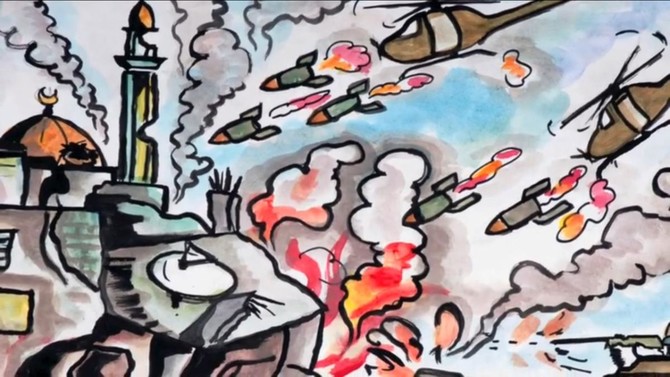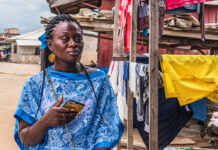Western medicine falls short of understanding trauma-induced illnesses in culturally appropriate ways in marginalized communities. A case study of Palestinians’ collective trauma and its trans-generational effects by epidemiologist Joshua Yudkin and his colleagues supports developing the comprehensive communal trauma intervention model (CCTIM). Their paper outlines a population-level model for treating trauma in vulnerable communities around the world.
“The ‘best practices’ from the West that guide the work of international teams often eschew traditional, individual, and community coping skills and tactics,” Yudkin and his coauthors write. “As a result, there is a need to employ an equity-oriented approach to research on and work in marginalized communities so that members of these communities can both have a voice and help influence the priority-setting process.”

Global mental health has been routinely critiqued for how information flows from individual-centric, Western countries to cultures in the Global South where such information may not speak meaningfully to the new context. Diagnostic tools and therapeutic interventions, including those for post-traumatic stress disorder, are typically created and validated in Western countries and then haphazardly applied elsewhere.
Critics have raised ethical concerns across the mental health landscape, arguing that this approach’s cultural insensitivity threatens the success of interventions and may even actively harm those who are most in need of support. Especially in light of other, more straightforward interventions, like economic support, it is unclear whether these colonial assumptions can be disentangled from the global mental health project.
Yudkin, a researcher at the University of Texas Health Sciences Center, alongside colleagues in America and the Palestinian territory, developed a transdisciplinary approach from a case study of Palestinian trauma that explores the relationship between the formal PTSD diagnosis and the cultural context. Their paper, published in Community Mental Health Journal, introduces a theoretical framework, the comprehensive communal trauma intervention model (CCTIM), to assess and heal collective-level trauma in the Palestinian community.
The researchers explain that Palestinians struggle to assert their identity and heal their injured “karamah,” or “dignity.” They are individually and collectively victims of a shared history, discrimination, and multiple forms of persecution. These have occurred on a communal level. For this reason, as a collective, Palestinians show increased levels of what is conceptualized in Western psychiatric practice as PTSD.
With regard to trauma-related diagnoses specifically, global health researchers and Palestinian medical leadership deny PTSD’s utility and application outside of Western cultural settings. Palestinian researchers and providers increasingly rely on measures of social wellbeing and quality of life indicators over psychiatric diagnoses, using an “ease to disease” spectrum on which most Palestinians fall.
To address trauma-induced illness, both trauma and sociopolitical context must be addressed in a public health framework. The model introduced, CCTIM is empirically based and aims to address communal trauma on many levels, providing short and long-term advantages.
CCTIM provides three entry points in a triangular model: (1) address the root cause of collective trauma, (2) develop strategic research-based partnerships, and (3) implement healthcare system modifications. It enables individual healing but focuses on the population as a whole.
Concerning the root cause of trauma, the authors argue that “through addressing the political trauma upstream, the incidence of this specific issue would decrease significantly, and public health practitioners could finally prioritize efforts on both collective and individual healing.”
Research-based partnerships are another pillar of the model. The authors write that these should be developed between institutions in the marginalized population and Western institutions. However, these partnerships must be cultivated without prescriptive recommendations. Priority should instead be placed on giving agency and voice to local stakeholders who are better suited to articulate, in local flavor and nuance, the needs of their work settings. Some of these have already been successful in Palestinian territory. The researchers suggest that knowledge gained may apply or speed up disseminating helpful practices in other marginalized communities.
Finally, healthcare systems are often among the first institutions to fail during a conflict. They are usually not prepared to provide necessary services for trauma-induced illnesses in the first place. Modifications in terms of policy, healthcare delivery, coordination, and patient-centered services are needed for Palestinians whose limited system is currently under-resourced, dependent on the WHO and external aid, and dominated by the Western biomedical modus operandi.
Geared toward remediation in the age of globalization, the CCTIM framework employs an equity-oriented approach to give agency to local leadership from marginalized communities. The model promises to recalibrate the balance of power, including and empowering voices from marginalized communities. The holistic interventions may provide access to healing through storytelling, showing the limitations of Western understandings of pathology, and putting policymakers and healthcare systems in better positions to address root causes of trauma.
****
Yudkin, J. S., Bakshi, P., Craker, K., & Taha, S. (2021). The Comprehensive Communal Trauma Intervention Model (CCTIM), an Innovative Transdisciplinary Population-Level Model for Treating Trauma-Induced Illness and Mental Health in Global Vulnerable Communities: Palestine, a Case Study. Community Mental Health Journal. https://doi.org/10.1007/s10597-021-00822-9















Shrinks for the oppressed! Much more practical than defeating the oppressor.
Report comment